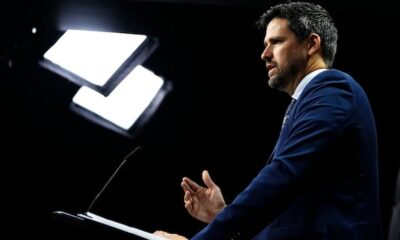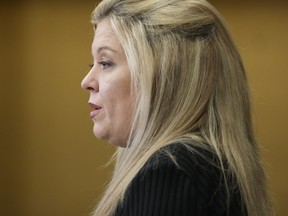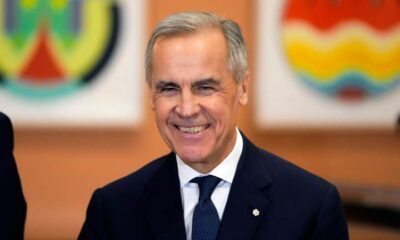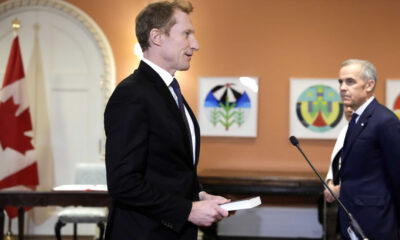Business
Poilievre Challenges Carney on Federal Deficit Projections
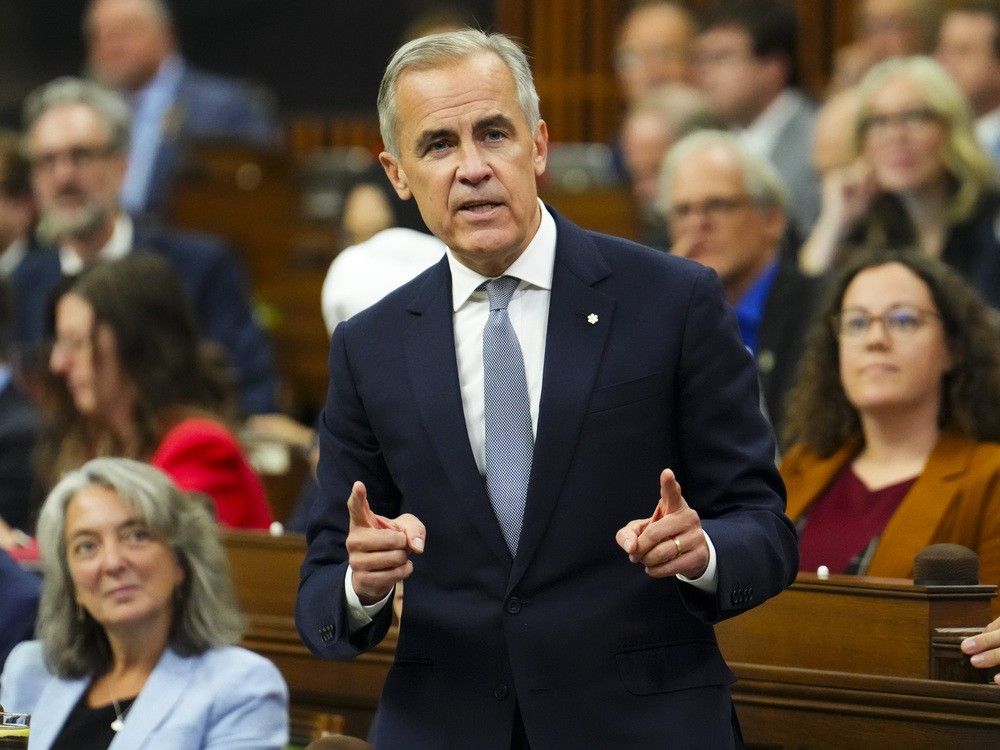
The Conservative Leader, Pierre Poilievre, confronted Prime Minister Mark Carney in the House of Commons regarding the anticipated federal deficit for the year. As the parliamentary session resumed earlier this month, Poilievre pressed Carney for details ahead of the budget announcement scheduled for November. Last year’s deficit reached a staggering $61.9 billion, exceeding the Liberal government’s forecast by at least $22 billion. This year, the cabinet committed to limiting the deficit to $42.2 billion, yet projections suggest that they may exceed this figure by more than $20 billion.
The Parliamentary Budget Officer (PBO), in a recent report, provided a non-partisan outlook that starkly contradicts the government’s claims of fiscal restraint. Interim PBO Jason Jacques addressed the Commons government operations committee, indicating that the current administration has escalated spending beyond that of former Prime Minister Justin Trudeau‘s government. Jacques projected the deficit could reach $68.5 billion, which is over 62% higher than the government’s stated figures. He remarked, “This is not sustainable in the long term. That’s what is shocking.”
Jacques elaborated on the implications of ongoing debt accumulation, describing future deficit projections and interest payments on the national debt as “stupefying” and “unsustainable.” He noted that in 2015, when the Trudeau government assumed power, annual interest payments on the national debt accounted for about 7% of total program spending. By 2019, this figure had risen to just over 10%. If current spending trends continue under Carney’s leadership, Jacques warned that by 2030, interest payments could soar to over 14% of total spending.
The impact of such financial obligations is significant. Every dollar allocated to interest payments detracts from funds that could be invested in social programs or infrastructure, or returned to Canadians as tax cuts. Jacques illustrated this point with a household analogy, suggesting that excessive credit card spending could eventually force someone to compromise on essential living expenses.
According to Jacques, the PBO estimates this year’s public debt charges will amount to $53.6 billion, in addition to program spending of $496.1 billion. By 2030, without substantial cuts in federal spending, debt charges are projected to escalate to $82.4 billion on top of spending reaching $582.3 billion.
As the November budget approaches, Carney has pledged a “frugal” fiscal plan. Yet, the absence of concrete evidence supporting this assertion raises doubts. Poilievre’s inquiry in the Commons underscored this skepticism, questioning Carney’s fiscal expertise given his access to the Finance department’s internal projections. In response, Carney stated that the upcoming budget would represent “the biggest investment in this country’s future in a generation,” a claim that does not align with the notion of fiscal restraint.
In a moment reminiscent of former U.S. President Donald Trump, Carney confidently declared, “Yes, I am a great fiscal (and) budgetary expert. Yes, I am a great economist.” Observers now await tangible proof of this assertion as the November budget draws near.
-

 Politics4 weeks ago
Politics4 weeks agoSecwepemc First Nation Seeks Aboriginal Title Over Kamloops Area
-

 World5 months ago
World5 months agoScientists Unearth Ancient Antarctic Ice to Unlock Climate Secrets
-

 Entertainment5 months ago
Entertainment5 months agoTrump and McCormick to Announce $70 Billion Energy Investments
-

 Science5 months ago
Science5 months agoFour Astronauts Return to Earth After International Space Station Mission
-

 Lifestyle5 months ago
Lifestyle5 months agoTransLink Launches Food Truck Program to Boost Revenue in Vancouver
-

 Technology3 months ago
Technology3 months agoApple Notes Enhances Functionality with Markdown Support in macOS 26
-

 Lifestyle3 months ago
Lifestyle3 months agoManitoba’s Burger Champion Shines Again Amid Dining Innovations
-

 Top Stories2 months ago
Top Stories2 months agoUrgent Update: Fatal Crash on Highway 99 Claims Life of Pitt Meadows Man
-

 Politics4 months ago
Politics4 months agoUkrainian Tennis Star Elina Svitolina Faces Death Threats Online
-

 Sports5 months ago
Sports5 months agoSearch Underway for Missing Hunter Amid Hokkaido Bear Emergency
-

 Politics5 months ago
Politics5 months agoCarney Engages First Nations Leaders at Development Law Summit
-

 Technology5 months ago
Technology5 months agoFrosthaven Launches Early Access on July 31, 2025

